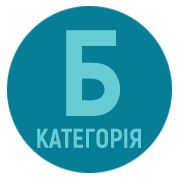LANGUAGE BIOGRAPHY AS THE SOURCE OF DESCRIPTION OF THE INFORMANT’S LANGUAGE LIFE
DOI:
https://doi.org/10.32782/2307-1222.2024-58-10Keywords:
interview, language biography, language behavior, language consciousness, questionnaire.Abstract
The article is devoted to the analysis of the language biography method as the most profound way of describing the language life of the communicator. It argues that this method is very important nowadays in the period of Russian-Ukrainian war. Russian-speaking Ukrainians now switch to the state language of communication, improve their language consciousness, rethink their national and language identity. The method of language biography allows to record the main trends of such changes: psychological moments, reasons and motives that led to the transformations in the language life of the informants.
It is found that the method of language biography is the form of in-depth narrative interview, the purpose of which is to describe the whole life of the person with the emphasis on aspects related to language learning, changing language behavior, attitudes towards language codes, etc. We have recorded 27 language biographies (40–60 minutes) during our research.
The application of this method involves the creation of the special questionnaire that contains questions, which are important for describing the language life of the informant. We usually divide these questions into several blocks: general data about the respondent; childhood and school; family, friends, work, leisure time; attitude to languages; language difficulties and conflicts, peculiarities of using language codes. The article provides the list of questions that we use, conducting language interviews. Interviews with speakers are presented in the format of dictaphone recordings, which are later transcribed. On the basis of the deciphered materials of language biographies we have the opportunity to learn not only information about personal psychological moments related to the use of languages, but also to trace the peculiarities of the development of the language situation in the country in general. It is proved that the method of language biography is not quantitative, as it is not supported by any statistical data, but it allows to trace the main trends of changes in the language behavior and language consciousness of the respondents. The conclusion is made about the relevance of this method at the current stage of studying the transformations of the language situation in Ukraine during the full-scale Russian-Ukrainian war.
References
Брага І.І. Мовна біографія білінгва (спроба реконструкції). Закарпатські філологічні студії. 2012. Вип. 8, Т. 1. С. 7–12.
Брага І.І. Мовна особистість носія українсько-російського суржику в його мовних автобіографіях. Вісник Донецького національного університету. Серія «Гуманітарні науки». 2014. Вип. 1–2. С. 32–39.
Данилевська О.М. Мовна біографія вчителя в дослідженні динаміки мовної ситуації у шкільній освіті України. Українська мова. 2023. № 4. С. 49–69.
Кісс Н.С., Шумицька Г.С. Соціолінгвістичний метод мовної біографії та практика його застосування на Закарпатті. Соціальне у мові та мова в соціумі : колективна монографія. Київ : НаУКМА, 2023. С. 83–133.
Цар І.М. Мовна біографія єзидки-киянки як приклад мовної адаптації полілінгва в Україні. Мова і міжкультурна комунікація: теорія та практика : збірник матеріалів ІІІ Всеукраїнської науково-практичної конференції, м. Полтава, 25 травня 2022 р. Полтава : ПДАУ, 2022. С. 178–182.
Цар І.М. Мовна поведінка молоді у білінгвальному місті. Територіальні та соціокультурні умови функціонування української мови в Україні : монографія. Київ, 2023. С. 518–618.
Franceschini R. Language biographies. Sociolingustica. 2022. № 36 (1–2). Р. 69–83.
Kliuchnikova P. Linguistic Biographies & Communities of Language of Russian Speakers in Great Britain, Durham theses, Durham University. 2016. URL: http://etheses.dur.ac.uk/11374/.
Nekvapil J. Language biographies and the analysis of language situations: On the life of the German community in the Czech Republic. International Journal of the Sociology of Language. 2003. № 162. P. 63–83.
Verschik A. Linguistic Biographies of Yiddish Speakers in Estonia. Folklore (Estonia). 2002. P. 38–52.










